13 Jun2022
By Kaitlyn Brennan
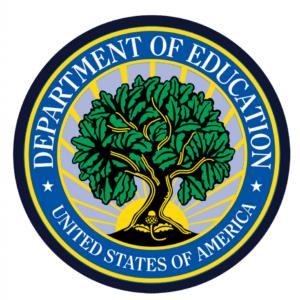 This weekly Washington Update is intended to keep members informed on Capitol Hill activities impacting the educator preparation community. The views expressed in this post do not necessarily reflect the views of AACTE.
This weekly Washington Update is intended to keep members informed on Capitol Hill activities impacting the educator preparation community. The views expressed in this post do not necessarily reflect the views of AACTE.
This week Congress is back in session and we have learned that the House has set the schedule for marking up FY2023 bills this month. Reports signal that on June 22, the House will approve the 12 subcommittee allocations, meaning they will set the mark for the total amount each subcommittee will have to work from. On June 30, starting at 10 a.m. EST the Committee will mark up the Labor-HHS-Education bill. It is sure to be a busy summer as advocates continue to urge Members to make significant investments in education- specifically investments targeted to address the critical shortage of educators and specialized instructional support personnel across the nation.
10 Jun2022
By Dorie Turner Nolt, Jolene and J. Fidel Turner
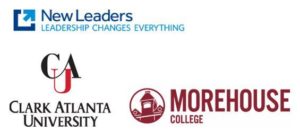 Educators looking to become school leaders in 37 states and Washington, DC, can now enroll in the National Aspiring Principal Fellowship, a first-of-its-kind program created by national nonprofit New Leaders in partnership with distinguished historically Black institutions Clark Atlanta University and Morehouse College to dramatically boost the number of principals of color leading K-12 schools across the country.
Educators looking to become school leaders in 37 states and Washington, DC, can now enroll in the National Aspiring Principal Fellowship, a first-of-its-kind program created by national nonprofit New Leaders in partnership with distinguished historically Black institutions Clark Atlanta University and Morehouse College to dramatically boost the number of principals of color leading K-12 schools across the country.
10 Jun2022
By Madeline Will
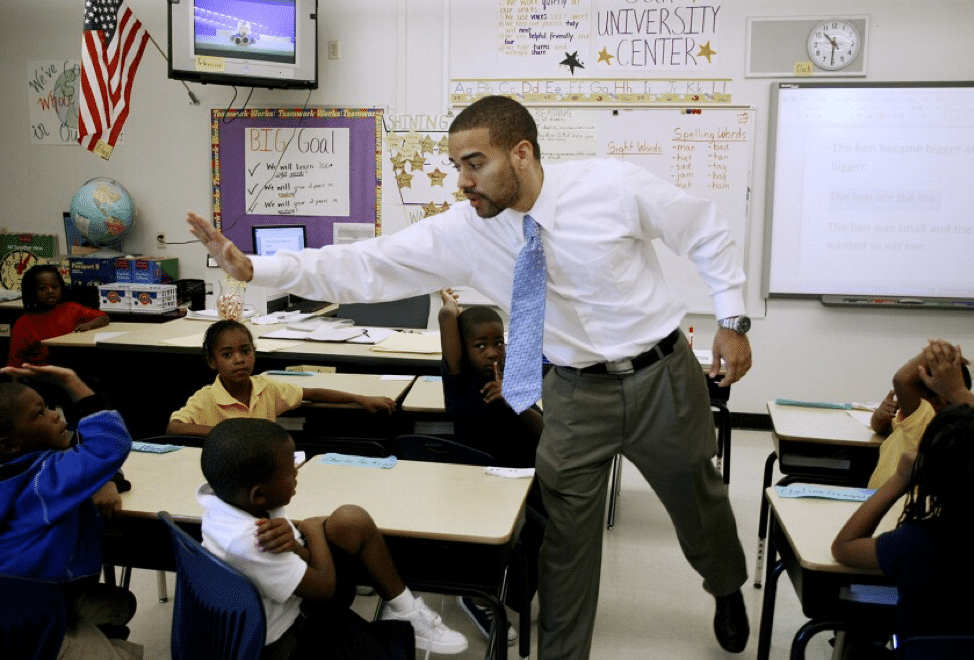
Michael Darmas, a Teach For America instructor, gives his student a high five in this 2011 photo taken at Holmes Elementary School in Miami.
J Pat Carter/AP
This article originally appeared in Ed Week.
Alternative-certification programs have long been thought of as one solution to teacher shortages, but a new analysis shows that the number of candidates completing those programs has declined over the past decade, despite a boom in enrollments and new offerings.
The findings underscore the complex and changing nature of the teacher hiring pipeline: Alternative programs are typically cheaper and faster than traditional teacher-preparation programs based at colleges and universities. They are bringing in new and more diverse talent to the teaching workforce. But as the authors of the new report warn, their candidates don’t always finish, and quality control remains an issue.
10 Jun2022
By James Minichello

The 17 organizations above representing the full breadth of the national K-12 education community, including school superintendents, administrators, educators, school mental health providers, school staff and parents, call on Congress to swiftly pass legislation that will address the senseless epidemic of gun violence in this country.
Schools and educators alone cannot bear the full burden of addressing the public health crisis of gun violence. The answer to stopping gun violence in our schools is not to arm our educators or to focus solely on better addressing the mental health crisis. As a nation, we must take a hard look at the various societal factors that are contributing to our high rates of gun violence and suicide and commit to meaningful action.
10 Jun2022
2022 Washington Week Attendee Recaps Her Experience
By Christine Gentry
 This year, AACTE’s Washington Week event (Educating the Future: Policy and Advocacy as Levers of Change) was held in person for the first time in three years. The energy in the Renaissance Arlington Capital View Hotel was high as colleagues met and reunited with each other.
This year, AACTE’s Washington Week event (Educating the Future: Policy and Advocacy as Levers of Change) was held in person for the first time in three years. The energy in the Renaissance Arlington Capital View Hotel was high as colleagues met and reunited with each other.
The week opened on Monday with a warm welcome by Lynn M. Gangone (AACTE’s president and CEO), followed by a plenary session on AACTE’s legislative priorities by Mike Rose (AACTE’s senior director of government relations) and members of AACTE’s Committee on Government Relations and Advocacy (including myself), who offered tips on having successful meetings with public officials.
09 Jun2022
By Matthew Wales

Time is running out to join your colleagues at AACTE’s 2022 Leadership Academy! Whether just beginning your career in academic leadership, or a seasoned and experienced leader with years of experience, this reimagined Academy provides professional development that is essential and applicable to everyone. And at a registration price point lower than at any time in the last 10 years, there’s no better way to gain essential training while being mindful of your budget as well.
As the education climate continues to evolve, leaders today find themselves navigating a number of hot topics. At this year’s Leadership Academy, attendees will have an opportunity to explore these pressing items. Whether reviewing case studies that are “ripped from the headlines,” or interacting in roundtables to brainstorm solutions to problems of practice, participants are sure to walk away from this Academy with action items to implement upon returning to their institutions.
08 Jun2022
By AACTE
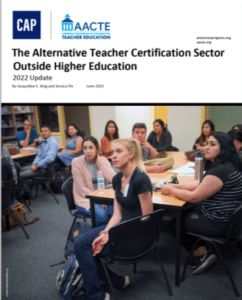 The Center for American Progress (CAP) and the American Association of Colleges for Teacher Education (AACTE) today released The Alternative Teacher Certification Sector Outside Higher Education. The report, which builds upon CAP’s 2020 study of this sector, updates and extends the analysis to include more recent student data and a historical look at patterns in the teacher preparation program landscape.
The Center for American Progress (CAP) and the American Association of Colleges for Teacher Education (AACTE) today released The Alternative Teacher Certification Sector Outside Higher Education. The report, which builds upon CAP’s 2020 study of this sector, updates and extends the analysis to include more recent student data and a historical look at patterns in the teacher preparation program landscape.
In response to the teacher shortage, some states allow non-traditional models for preparing teachers, including alternative certification programs run by organizations other than colleges and universities. According to the report authors Jacqueline King, senior consultant to AACTE, and Jessica Yin, former policy analyst for the K-12 Education Team at CAP, The Alternative Teacher Certification Sector Outside Higher Education provides information for policymakers, education researchers, and leaders in educator preparation seeking to better understand this sector and identify necessary legislation, regulations, or opportunities for additional research. It tracks enrollment and completion trends in this sector over the last decade, with particular attention to fast-growing programs run by for-profit companies that account for nearly 70 percent of all students enrolled in the sector as of academic year 2018-19.
07 Jun2022
By Kyle Mittan

Chris Richards/University of Arizona
A University of Arizona College of Education program that provides mentorship and educational resources to Arizona’s Indigenous communities will extend its reach thanks to a $1.2 million grant from the Arizona Department of Education.
The Native Student Outreach, Access and Resiliency program, better known as Native SOAR, emphasizes Indigenous teaching and knowledge. Over the course of 10 weeks, the program allows UArizona students from any major to spend about three to four hours a week mentoring middle and high students across Arizona and teaching them about attending college, cultural resiliency, leadership skills and identity exploration.
07 Jun2022
By Jacqueline Rodriguez
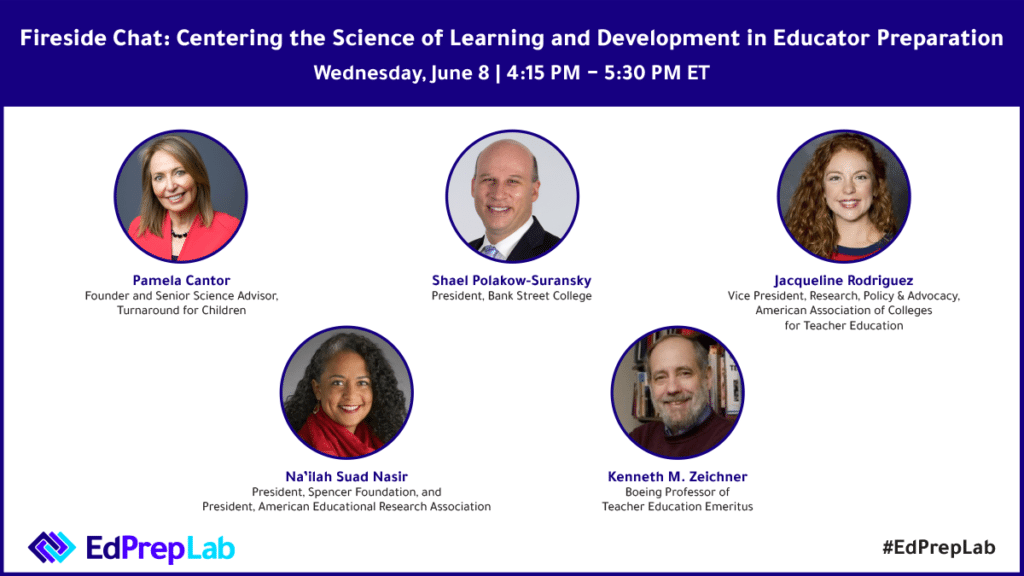
On June 8, the EdPrepLab, a collaboration between the Learning Policy Institute and Bankstreet College, will host its annual Spring Convening. Registration closes Tuesday, June 7.
Speakers will discuss research on new design principles for educator preparation based on the science of learning and development. We will kick off the discussion with a keynote address by Pamela Cantor, MD, founder and senior science advisor of Turnaround for Children, on the importance of using the science of learning and development to design learning environments for PK–12 students. We will then turn to a conversation about how EdPrepLab is using the science of learning and development to craft principles for the preparation of teachers and leaders. These principles will sharpen EdPrepLab’s focus on the structures and practices educator preparation programs need to enact in order to prepare teachers and leaders focused on deeper learning and equity. Speakers will discuss the critical role these principles should play in designing preparation programs that develop the educators all our students need and deserve.
07 Jun2022
By Matthew Wales
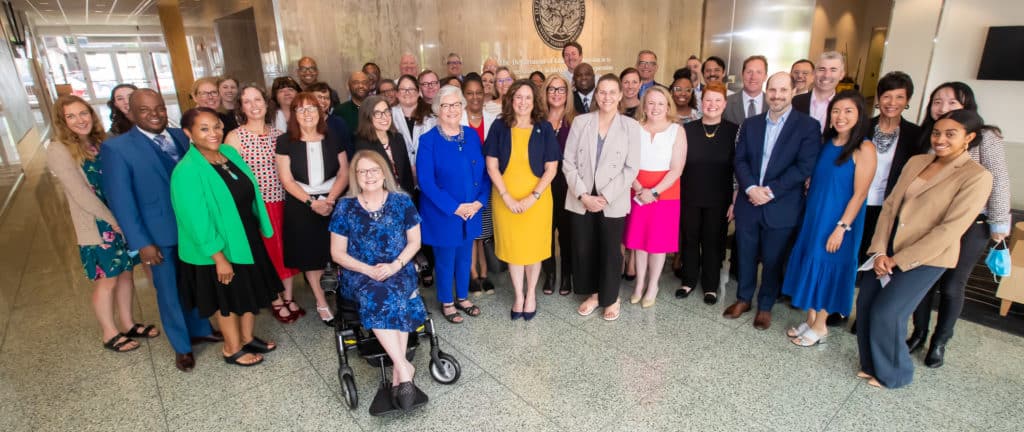
Today, representatives from several AACTE member institutions, along with AACTE staff, representatives from both the Council for the Accreditation of Educator Preparation (CAEP) and the Association for Advancing Quality in Educator Preparation (AAQEP), and colleagues from the International Society for Technology in Education (ISTE) and the Society for Information Technology and Teacher Education (SITE), committed to leveraging their resources to support the adoption of the EPP Digital Equity and Transformation Pledge.
In a signing ceremony at the U.S. Department of Education with Deputy Secretary Cindy Marten, the following AACTE members, on behalf of their respective institutions, committed their educator preparation programs to expanding and scaling digital equity and transformation in learning:
07 Jun2022
By Matthew Wales

As we prepare for AACTE’s upcoming 75th anniversary in 2023, this is an early reminder that membership expires at the end of 2022. To thank you for your continued backing during this historic time, dues rates for 2023 membership will remain at 2022 levels for you, our valued and loyal members. You may renew your institution’s membership in one of the following ways:
06 Jun2022
A One-Hour Virtual Workshop on Wednesday, July 27
By Cheryl Craig and Valerie Hill-Jackson

Where would the field of teacher education be without quality feedback from a community of scholars? Peer reviewers play a vital role to substantiate scholarship and help academic disciplines to thrive. AACTE and the Journal of Teacher Education (JTE) are hosting our inaugural free workshop on the best practices of effective peer review. Registration is limited, so save your seat today.
Why become a promising peer reviewer? Promising peer reviewers are not born, they develop over time. In becoming a promising peer reviewer, you learn the art of peer critique from the perspective of a reviewer, acquire sound approaches to academic writing, become a part of a network, engage recent research in the field, and gain service credit for your professional curriculum vitae. Many of us have the innate abilities as experts in our disciplines. But to be a promising peer reviewer require a particular aptitude and capabilities. When done well, peer review is a win-win-win because it sharpens the author’s writing, advances the journal’s vision, while adding to the peer reviewer’s professional acumen. Promising peer reviewers serve as the lifeblood for the overall health and impact of JTE.
06 Jun2022
By Leslie Ekpe
 Congratulations to Deependra Budhathoki, Holmes Scholar of the Month for May 2022.
Congratulations to Deependra Budhathoki, Holmes Scholar of the Month for May 2022.
Budhathoki is a fifth-year Ph.D. candidate at Ohio University in Athens, Ohio. He was raised in Nepal and earned a master’s in education in mathematics education and a master of philosophy in mathematics education from Kathmandu University School of Education. He currently serves as the president of the International Student Union at Ohio University. The International Student Union fosters a sense of community and inclusivity for international students on campus by serving as an umbrella organization for other international student organizations.
06 Jun2022
By William Coghill-Behrends

In the summer of 1969 — 53 years ago this June — the infamous Stonewall Riots took place in New York City, launching the modern LGBTQ+ movement for equity and freedom. For this reason, June has become synonymous with PRIDE celebrations across the nation. Rainbows color many storefronts and major retailers launch their PRIDE-related marketing blitzes. I, for one, love the proliferation of the rainbow across our neighborhoods, retail districts, and campuses. Afterall, visibility matters. As a gay man who came out during his senior year of high school 30 years ago and who worked hard to advance an agenda of openness and support for LGBTQ+-identified individuals, first as a high school teacher and later college professor, I look back on these decades with pride as we acknowledge where we were so many years ago. And yet, PRIDE takes on a new meaning this year, as schools increasingly become the battleground in the fight against LGBTQ+-equity and in particular trans lives.
What are the stakes in this culture war? What are the possible ramifications of anti-LGBTQ+ legislation and censorship? Most notably, our children are the ones who suffer in these baseless attacks against trans and queer kids. LGBTQ+ students report harassment at rates much higher than their peers (and the highest of all minority populations, GLSEN). LGBTQ+ students in many states report that their school does not feel safe, and that teachers do not feel supportive. According to the Trevor project, LGBTQ+ students report higher rates of depression and anxiety than their peers and rates of suicide in this group are by some estimates 7X higher than other peer groups. Indeed, this is a matter of life and death for our kids.
06 Jun2022
By University of Montevallo
Throughout Alabama, rural school systems are experiencing teacher shortages that the University of Montevallo is stepping up to try and fill.
UM’s College of Education and Human Development has committed to increasing the number of highly qualified teachers to serve in targeted rural public schools by offering the new Rural Recruitment Scholarship to support and prepare students to teach in rural schools.
“Although Alabama is experiencing a statewide teacher shortage, vacancies disproportionately impact rural schools,” said Dr. Courtney C. Bentley, interim provost and vice president for academic affairs. “The College of Education and Human Development is extremely grateful for these generous funds that will help us prepare highly qualified teachers to serve students in these rural communities.”
 This weekly Washington Update is intended to keep members informed on Capitol Hill activities impacting the educator preparation community. The views expressed in this post do not necessarily reflect the views of AACTE.
This weekly Washington Update is intended to keep members informed on Capitol Hill activities impacting the educator preparation community. The views expressed in this post do not necessarily reflect the views of AACTE.


















